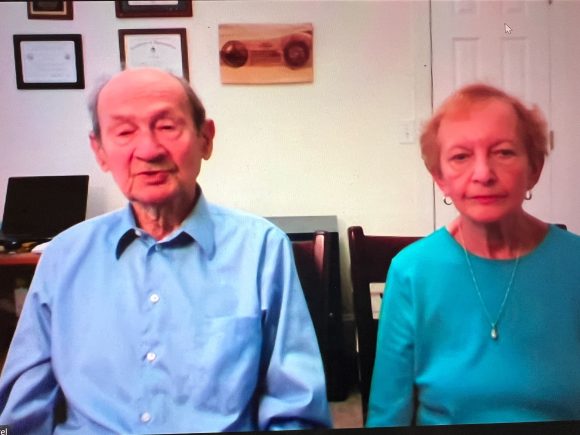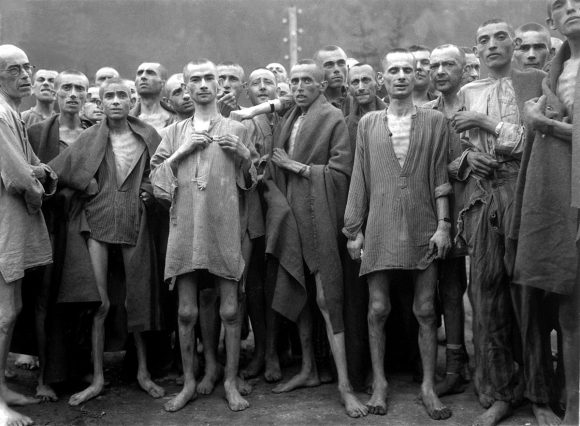
Zev Harel (left), alongside his wife Bernice (right), presents on Zoom on Oct. 6, 2022. (Jessi Sachs/CU Independent)
On Thursday, Oct. 6, the Program of Jewish Studies at the University of Colorado Boulder hosted a Zoom event with Holocaust survivor Zev Harel. Harel spoke to Boulder community members about his experiences surviving the concentration camps of Auschwitz, Mauthausen and Ebensee. During the event, he spoke about the importance of gratitude, sharing what he felt thankful for despite the many painful experiences he has faced in his life.
“I feel very, very thankful and very lucky that I am still here,” he said.
The meeting began with event coordinator Thomas Pegelow Kaplan explaining that all remote audience members had been muted, to reduce the risk of “zoom bombing” attacks by Holocaust deniers.
“It is always a bit awkward to mute everyone on screen, but it was brought to my attention that a denier under a pen name managed to get in,” Kaplan explained. “I am glad that only the speaker and the classroom are visible and unmuted.”
After Kaplan’s warning, Harel began his discussion of the history behind the Holocaust, explaining how rampant antisemitic ideals caused Germany to become a Nazi-controlled nation. Harel described his experiences of growing up in a small village in Transylvania, which is now a part of modern day Romania.
He also described the several stages that marked his town’s descent into genocide, beginning with being forcibly placed into a Jewish ghetto and then being transported by kettle car with his loved ones to Auschwitz.
“We were locked in there in the ghetto for about ten months,” he said, describing the transition period before his transport to Auschwitz.

Zev Haral (second from the right) stands behind other liberated prisoners at the Ebensee concentration camp in Austria on May 6, 1945. (Courtesy of the National Archives and Records Administration)
Moving on to the concept of gratitude, Harel said he felt thankful to the Schutzstaffel guard who warned him to lie about his age. Harel, then 14-years-old, was told to assume the identity of a 17-year-old prisoner.
“If you were 15 or younger, your life ended there,” he said. “Had I told them I was 14, my life would have ended there.”
To conclude the event, Harel explained the three most vital takeaways from the atrocities he witnessed and experienced during his life.
“If you have a family member who in one way or another served in World War II, be thankful to them,” he said.
He soon continued to his second takeaway: “Reflect on the evil things that the Nazis and their allies were trying to do.”
Then, he said, “Encourage anything that you know should be the right thing to be done.”
Finally, Harel moved on to his final, most important message: “Make the world that we are a part of better.”
The Program of Jewish Studies will hold two other events in the fall semester, a conversation with professor Helmut Walser Smith about antisemitism in the German Empire on Oct. 13 and a symposium about Jewish food and identity on Nov. 14.
Contact CU Independent Staff Writer Jessi Sachs at Jessi.Sachs@colorado.edu.
